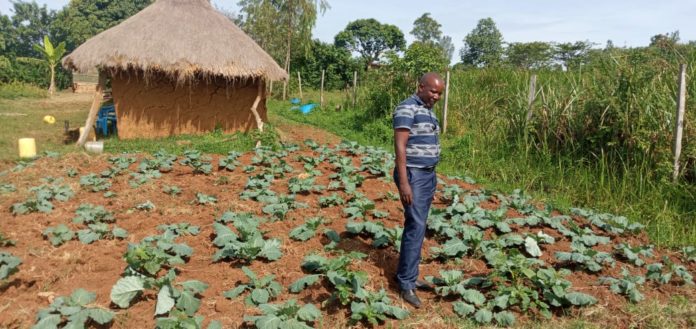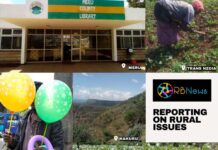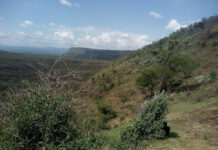By Jack Ochieng Ohito, DevReporter, Siaya County

Covid 19 Outbreak
Covid-19 killed careers of many professionals who lost jobs, faced salary cuts and even some companies closed for good during the pandemic. Business Pulse Survey, which was implemented by the World Bank between June and August 2020 shows that about 93 percent of firms in Kenya experienced a decrease in sales compared to the same period the previous year.
Sales dropped by around 50 percent on the average and median Kenyan firms, and by more than 70 percent for one-quarter of firms. Close to 65 percent of firms are experiencing a decrease in demand, cash flow, and available finance, according to the Business Pulse Survey.
According to Kenya Private School Association, nearly 400 private schools were forced to close because of the pandemic, affecting about 56,000 students.
Changed Life
Twenty-seven-year-old Samuel Ouma, a primary school teacher at Achievers academy in Rarieda sub-county, says the announcement of the first case of Covid-19 in Kenya in March 2020 changed his life completely.
“The outbreak of Covid-19 in Kenya affected me since I was in a private school. The day President Uhuru Kenyatta announced the closure of all schools in Kenya was like I was finished completely. I stayed for 6 months not able to pay rent because the school stopped paying us. I was eating from the mercy of some parents who were generous enough to financially support me,” Ouma says.
Ouma further narrates how he overcame the situation, which he according to him, could as well be his turning point in life.
“As teachers, most of us are not used to engaging in manual and hard jobs. So, I resolved to work as an agent for a radio station in Siaya, a job which required marketing skills and knowledge. I quickly adapted to the job with the help of staff members at the radio station. I could sell greeting, mention, and death announcement cards. However, the business gradually declined, and I could not sell anymore,” he adds.
Bishop Zack Owang of Christ the King Church shares his own story on how he made a lot of money during the difficult time of Covid-19.
He said, “Most servants of God believed that they could only survive on church alms, thanksgiving, and offerings. But for me, I did just like St Paul said that servants of God should work too. I owned a farm with different vegetable and fruits. This farm made me what I am today”.
Mary Atieno, a shopkeeper in Aringo estate in Siaya town is one of the small-scale traders who has felt the wrath of the effects of this pandemic.
“I used to sell basic foodstuffs including dairy products and household items. Daily sales used to range between Ksh 15,000 and Ksh 200,000. Today selling even Ksh 5,000 is a nightmare,” She lamented.
Studies on Covid-19
A few recent studies have examined the short-term effects of the COVID-19 pandemic in Kenya. One study conducted in five of Nairobi’s largest urban informal settlements found that 80 percent of their sample had experienced income loss, while also experiencing food price increases. Two-thirds of families had to skip a meal at least once or eat less in the two weeks preceding the survey.
Mr William Owino, an expert on matters of Covid-19 response said: “Those who were affected by the pandemic went through trainings and now they seem to have recovered. But for the economy to get back to normal, the public should be highly involved in designing and implementing interventions”.
In the recent past, many researchers and media houses assessing post-pandemic effects, have focused on impact of Covid-19 on incomes from business, employment, and other sources. The assessments found that incomes have declined across the board.
Going forward. Policymakers must seek to balance between protecting the health of the population and shielding incomes and livelihoods.






